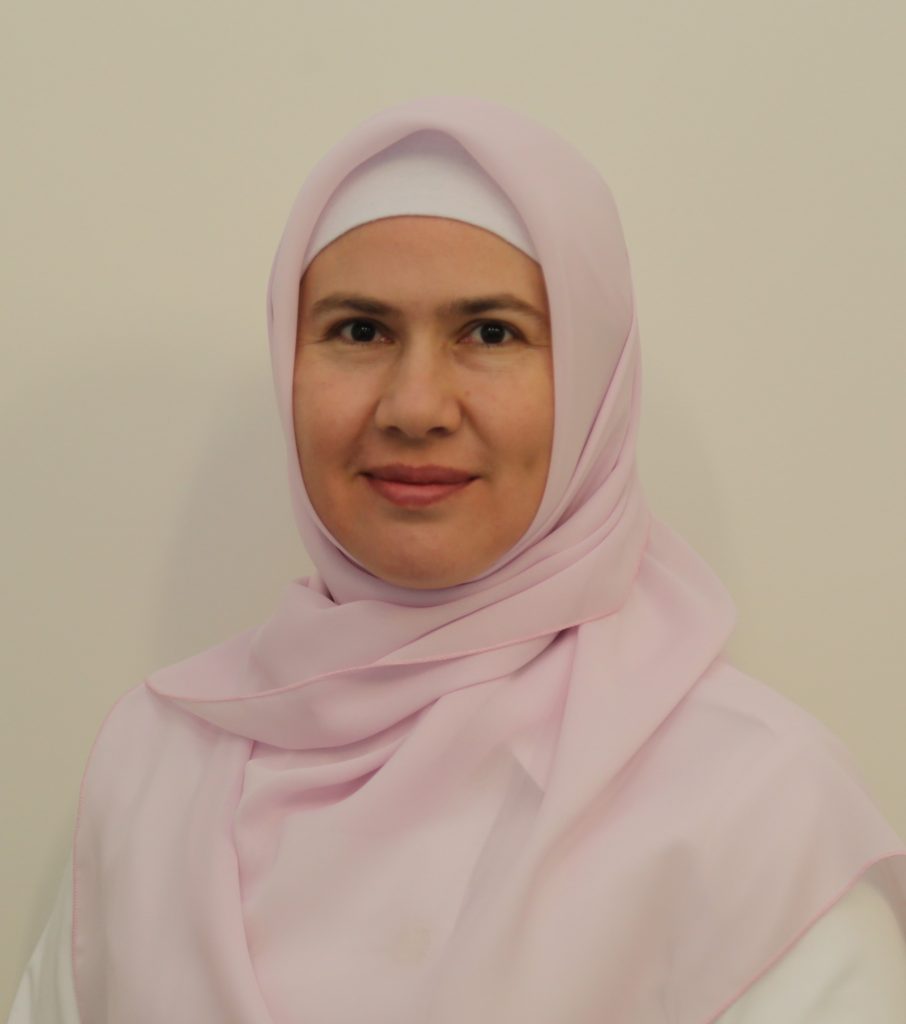Islam is the world’s second-largest religion, with 1.8 billion Muslims around the world. For the past decade, Charles Sturt and the Centre for Islamic Studies and Civilisation have collaborated to empower and educate those wanting to study Islam and enrich their understanding of the faith.

We caught up with Associate Professor Zuleyha Keskin, lecturer and course director for Charles Sturt’s Centre for Islamic Studies and Civilisation, to chat about the opportunities and personal growth on offer when you study Islam.
Zuleyha is the managing editor of the Australian Journal of Islamic Studies and vice-president of the Australian Association of Islamic and Muslim Studies. She co-founded ISRA Australia to help teach university-level Islamic studies courses focusing on traditional and contemporary understandings of Islam.
Why study Islam?
The skills you gain from studying Islam can be applied across a wide range of careers and contexts.
“Islamic studies allows students to attain foundational and solid Islamic knowledge, and that’s something a lot of our students are seeking. About 98 per cent of our students are Muslim. Our students study for personal development, interest or passion purposes. Islamic studies gives them the knowledge and skills they’re seeking.
“Students develop the ability to express the knowledge they have gained. They also develop their communication, analytical and writing skills, which is a very important part of their growth. For undergraduates, these skills usually need nurturing as they head into the world of employment.”
And, through our collaboration with ISRA, we’re experts in Islamic studies.
“Our Bachelor of Islamic Studies has been offered for about 10 years now, the same as our master’s. There is no other university in Australia that offers a bachelor’s or master’s in Islamic studies by coursework. So it’s a very niche but important area.
“Some people want structured lessons from a reliable source, so they can further knowledge of their faith. There’s a lot of peer-to-peer learning within the courses. That’s really important because students interact with other students. Our students are online but we have weekly tutorials for all our subjects, so they have weekly engagement with their peers and their tutors.
“There are a lot of opportunities for students to discuss what they’ve learnt and ask questions. The fact that it’s coursework means they get to delve into different discipline areas, and that’s also appealing for a lot of students. There’s a lot of sub-disciplines of Islamic studies that are covered like history, spirituality, and language.”
Why people study Islam
There are many reasons why choosing Islamic studies is a great idea. In a recent survey, Charles Sturt students shared that their motivation for studying their Islamic studies degree was to:
- gain a university qualification in Islam (36%)
- learn Islam to teach others (20%)
- learn Islam for themselves and their family (18%)
- to assist with their existing profession (12%)
- to become an Islamic scholar (4%)
Forty-one per cent of students said they chose to study Islamic studies to help with employment, while 59 per cent said they studied for personal development.
One student shared that they were looking to expand on their learning.
“I learnt Islam in the Middle East and wanted to learn Islam from an authentic western perspective with the applicable skills to implement in western societies.”
Another student said they were looking for a holistic approach, “To learn Islam and incorporate the values and traditional training in all aspects of life.”
Become a teacher in an Islamic school
An undergraduate Islamic studies degree is the perfect pathway to a master’s in teaching. If you start with Charles Sturt’s Bachelor of Islamic Studies and then go on to study our Master of Teaching (Primary) or Master of Teaching (Secondary), you can get two qualifications in four years through intensive studies.
“A lot of students want to teach Islamic studies and find work in Islamic schools. Our students have gone on to become religion and values teachers or Arabic teachers after they’ve finished their master’s in teaching. At the moment Islamic schools are predominately in Sydney and Melbourne, but there are also Islamic schools in most Australian states.
“If students do their bachelor’s intensively over three sessions, they can finish the course in two years and then do their master’s in teaching over two years. So they can get two degrees in four years. It’s two degrees that are important to them – important for their knowledge base, and because it gives them a qualification.”
“The way the Bachelor of Islamic Studies is designed, students can choose four electives from other disciplines. So teaching areas don’t have to be limited to language or religion. Some students choose English as an elective, or business studies or maths. If students choose four maths electives, for example, they can then use these in their teaching degree to specialise in that area.”
Study Islam for professional development
But you don’t need to be interested in a teaching career to study Islamic studies. Many students choose our Islamic studies degrees to complement another area of study or enhance their skill set in their current occupation.
“Sometimes students choose to study the bachelor’s along with another degree. They might do another degree for professional development and the Islamic studies degree for personal development.
“Then we have students who are already in a profession. So they study with us for personal development purposes, for instance, they could be working in the corporate world and want to do something for themselves. Students also choose to study the Master of Islamic Studies with us to enhance their profession.
“If they’re a lawyer the degree can help them better deal with Muslim clients. Or if they’re a psychologist or doctor, it can help them to better understand their Muslim clients. We have students from a wide range of backgrounds. We have a very broad spectrum of student ages, professions and genders. Some are stay-at-home mums, then some are in the corporate world.”
Other opportunities that stem from Islamic studies include advocacy work, social justice initiatives, community work that involves Muslims.
“It gives them confidence. An Islamic studies degree can also be beneficial in international relations, government positions, and as a stepping stone to becoming a chaplain.”
One of our students shared how their Islamic studies degree has helped them grow.
“The course has allowed me a much more positive outlook on my professional goals. Plus, it has given me a better insight on my existing skills and values. The goal I had when I started has become even more paramount. I think that is entirely due to the value placed on learning and leadership.”
Explore where Islamic studies can take you
If you want to learn more about the Islamic faith and culture for professional or personal development, you can with our Islamic and Arabic studies courses. Help to make a difference in Muslim people’s lives and strengthen your appreciation and understanding of Islam.



You must be logged in to post a comment.